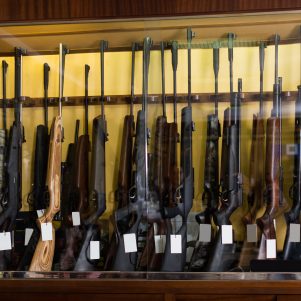The BLOG: Lifestyle
The nexus of music and medicine
Diane Kilgore | October 6, 2016
Leadership: Finding your voice in Music and Medicine was a lecture hosted by Harvard University at the Ed Portal in Allston. The Sept. 28th event featured a sting quartet whose performers included; Lisa Wong, M.D., a Boston Children’s Hospital pediatrician; Emily Hsieh, a research assistant at Dana Farber; Boston Children’s Hospital first female surgeon, Terry Buchmiller M.D.; and a molecular dermatopatholgist at Miraca Life Sciences, Julie Reimann, M.D. Ph.D. Accompanying them was Chief of Orthopedics at Boston Children’s Hospital, clarinetist, Mark Gebhardt, M.D. The round table-styled evening also included insights offered by Dr. Christoph Westphal, M.D.,Ph.D, CEO and co-founder of Flex Phama, a Boston based biopharmaceutical company.
The format of the evening was designed to answer three questions; what does it mean to lead, when to lead, and when to follow. Attendees of the HUB week event listened to conversations that thoughtfully articulated the concepts both verbally and musically. Dr. Wong, a strong proponent of music’s magic, is the past president of Longwood Symphony Orchestra. As a volunteer organization, LSO represents a multi-talented body of medical professionals culled from across the city’s medical Mecca. Dr. Wong believes musical expression is a dynamic, non-verbal option in communication that can be simultaneously beautiful, educational, emotional, and soothing.
By way of introduction the affiliates of LSO offered personal, sometimes amusing, anecdotes of how they came to music and medicine. Not necessarily focused on careers in science, all of the participants shared how the gifts of music appreciation came to them at an early age. As their expressions blended, the bi-focal nexus of disciples resonated. Not coincidentally, mastering music’s skill sets serve both musician and clinician in fundamental ways. Calming, restoring, liberating the mind, they found music opened pathways to complex dialogues enhancing concentration and connecting theoretical measures. For some, those nuanced, occasionally meditational phrases lead to unexpected inspirations.
As first violinist and concert mistress, Emily Hsieh, epitomized the intersection of musical leadership and medicine as she lead the group of doctors auditorially and physically throughout the performances. Her bow poised, she nodded, then leaned forward into the core concepts of the evening. Mozart’s Magic Flute served as metaphor illustrating how the research assistant instructed her ensemble to anticipate, harmonize, and play alone through her directions. The well orchestrated performance allowed the audience to see and hear the applications of supportive leadership and the benefits of limber transitioning of responsibilities. Following their prescribed roles the equally-abled team of metronomic “med-icians” underscored the message of the evolving Minuet’s melodic meritocracy.
Of the many insights Dr. Buchmiller offered about her path to medicine through music she was most expressive saying she simple needs it. She spoke so clearly of it’s importance, the audience could almost visualize her violin string tying her virtuoso O.R. performances to those she contributes to the LSO. Concert and research discipline were compatible notes offered by Dr. Julie Reimann as she said it’s typical of both professions to live life in constant pursuit and re-definiton of excellence. The quest feeds the drive to perfect performance through practice. Tenacity accompanies her commitment to both research and the rewards of solo and concert music.
Determined to improve his considerable clarinet skills, Dr. Gebhardt is annually a New Hampshire-bound summer band-camper who jams with anyone 9-90 years old. His seasoned instructor encourages the doc to play on, saying his own musical abilities improved significantly after he retired from teaching at Harvard. For Dr. Gebhardt, like the others, music has a transportive effect. It’s a vehicle that takes him away from the stresses of surgery into a space of calm. After he settles into practice with his fellow LSO members his mind reconstructs, then focuses on the dictation of the piece. As Chief of Orthopedics he reconciles leadership’s multiple manifestations with those he experiences while performing. He credits a business instructor with the wisdom taught through visualizing both a seated Ghandi and a marching General Schwarzkopf as they effectively lead their charges.
Dr. Christoph Westphal joined the performers on stage for a chat that was playfully-dismissive of his massive category of euphonious successes. Citing the unimaginative path of least resistance to music and medicine, Westphal said his parents were musicians and physicians, and that’s what they told him to be. A member of the Board of Overseers for The Boston Symphony Orchestra, Westphal explains he pursues music in less linear approach than the ensemble who used Mozart as their means of non-verbally expressing leadership’s flowing momentums. As a start up entrepreneur Westphal accesses scientific creativity through free flowing improvisational jazz riffs. The open phrases of music sometimes take his scientific ideations to places that haven’t been discovered yet. An ability to combine complex structure with a willingness to explore variations on crazy themes are two of the reasons this maestro has been featured on 60 Minutes, Vital Signs with Dr. Sanjay Gupta and an ABC News Special with Barbara Walters. In 2010, Westphal, considered a visionary, was recognized in a cover article by Fortune magazine for having started companies that developed drugs targeting some cancers, cardio-vascular disease, cystic fibrosis, inflammatory diseases and multiple sclerosis. In appearance, the gregarious father of five marches to the beat of his own drum, and conventional medicine is following.
The collective was an organic example of how applied singular disciplines can morph, producing expansive results. Greater than the sum of its parts, the Longwood Symphony Orchestra is an elegant philanthropy as well as an organizational fund-raiser of significance. Since its inception the non-profit collaborative has raised more than $1.5 million. Its empathy and kindness fund The Healing Art of Music program, serving the medical needs of Greater Boston’s under-served populations.
This year the award-winning orchestra has dedicated four concerts to support four designated charities. They are; Global Oncology (globalonc.org), Shattuck Partners (shattuckpartners.org) and Victory Programs (vpi.org), Caron Treatment Centers (caron.org), as well as EqualHealth (equalhealth.org). Although they serve uniquely different populations, each institution is dedicated to the quest of delivering professional medical care engaging research, recreation and hope-filled relationships.
For more information and schedule of LSO performances under the direction of Ronald Feldman at New England Conservatory’s Jordan Hall, call 617-987-0199 or visit www.longwoodsymphony.org.
Contact Diane Kilgore at [email protected].






